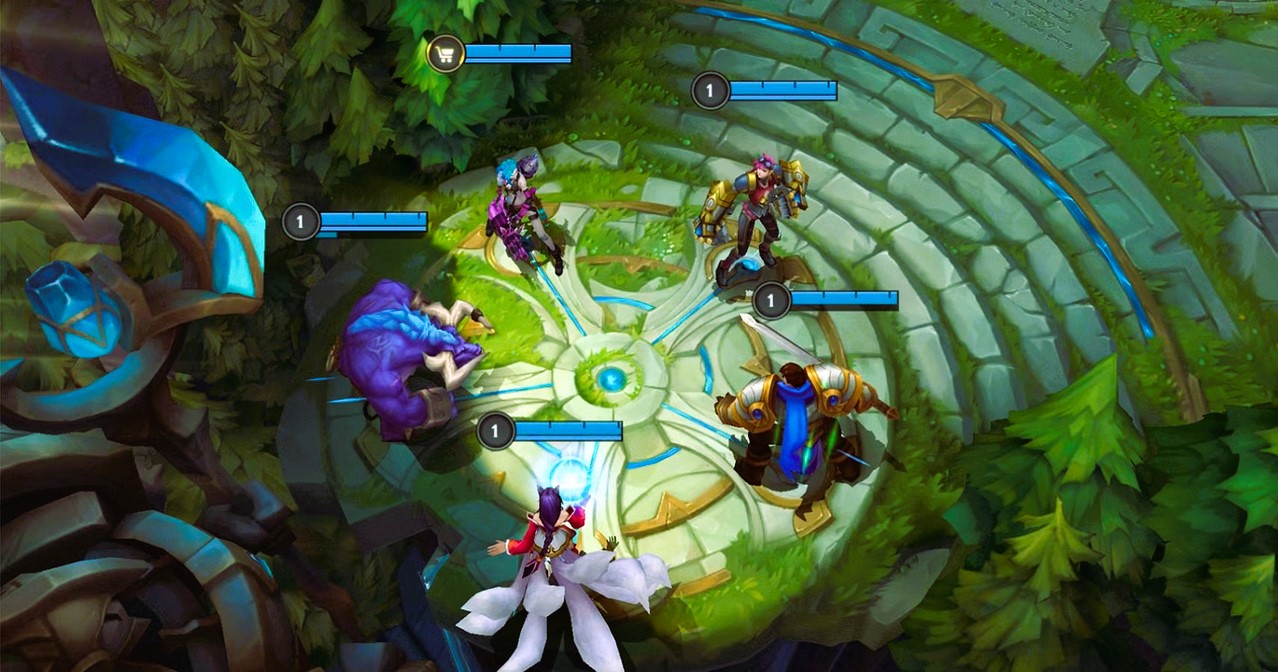Drawing a parallel between video game balancing and political system balancing may seem surprising at first glance. However, both realms pursue a common goal: creating an environment that, despite differences in abilities or tools among participants, offers equal opportunities and minimizes inequalities. In video games, balancing is crucial for fair and satisfying experiences, where players can leverage their skills without any single character or strategy dominating unfairly. Similarly, in politics, balancing is essential to ensure policies are fair and responsive to the needs of a diverse society.
By examining the methods used in video games to maintain balance, we can identify strategies applicable to political systems that could enhance their effectiveness and fairness. To illustrate this comparison, we will explore how balancing works in games like League of Legends and Age of Empires II and consider how these practices can inspire changes in political equilibrium.
Balancing in video games: constant adjustments for a fair experience
In the world of competitive video games, one of the primary goals is to ensure a fair and satisfying gameplay experience. In titles like League of Legends (LoL) and Age of Empires II (AoE II), developers regularly update the game mechanics, characters, and rules to prevent any single strategy or character from dominating and putting other players at a disadvantage.
League of Legends is a prime example of this kind of balancing. With over 160 champions, the game constantly faces the challenge of making adjustments to ensure each champion has a relevant and balanced role. Whenever a champion or ability becomes overly powerful, the team at Riot Games releases a “patch” to adjust that character’s stats, either by weakening their abilities or strengthening their competitors. Similarly, in Age of Empires II, developers adjust resource costs and the strengths of civilizations to prevent any one group from having an overwhelming advantage. These adjustments aim to foster competition where player skill has more weight than any inherent advantage in the game elements.
In both cases, balancing is adjusted regularly to respond to changing dynamics. This involves analyzing statistics, observing usage patterns, and studying community feedback, enabling developers to detect and address any imbalance that affects fair conditions as soon as it arises. This process creates a cycle of ongoing adjustments, where variables are reconfigured in response to player behavior.
Inspiration for the political system: how could these methods be applied?
Analyzing the balancing process in video games reveals that some principles could be useful in the political sphere, where challenges are complex and imbalances of power and resources are common. Adaptability and continuous adjustment are two essential elements in video game balancing that, if applied to political systems, could contribute to a more just and equitable society.
Constant updates and reviews
Just as video games update their patches to address specific disadvantages, political systems could benefit from a process of continuous review and adjustment, rather than relying on sporadic and often outdated cycles of reform. Ideally, real-time adjustment mechanisms would allow for the continuous evaluation of policy and law impacts, with application adjustments as needed based on observed results.
Diversification of powers and strategies
Game developers create multiple viable strategies, allowing players to use different characters or civilizations without any single option becoming dominant. In politics, this principle suggests the need to ensure a plurality of voices and strategies within the system, reinforcing the role of independent powers and enabling diverse ideologies to participate equitably in decision-making. This could reduce the risk of a single political ideology or economic group wielding disproportionate power.
Monitoring key indicators
Just as video games rely on statistics to identify potential imbalances, a political system should use impact and social welfare metrics to closely monitor the effects of each law or policy. Indicators of inequality, welfare, access to services, and citizen satisfaction could help identify problem areas that require specific adjustments, ensuring a balance in quality of life across different population sectors.
Citizen participation in balancing
In video games, developers often consult the player community, which provides data and opinions on character and mechanics balance. In politics, active and meaningful citizen participation could function similarly, allowing society to express opinions on the effects of policies and regulations. Implementing spaces for direct and ongoing consultation could be a powerful tool to identify areas for real-time improvement, ensuring that decisions reflect society’s interests.
Toward a more balanced political system
Taking inspiration from video game balancing does not mean simplifying politics to the level of entertainment; rather, it means applying proven principles of fairness, adaptability, and participation. Just as the video game world adjusts its rules and characters to create a fair experience, the political system should integrate a process of constant adjustment that allows for a quick response to the needs of a constantly changing society.
In the same way that League of Legends or Age of Empires II strive to offer a fair and challenging experience through careful balance, a political system inspired by these principles could focus on providing equitable opportunities for all citizens to develop their potential. This approach would enable policy design that considers all stakeholders in relatively balanced conditions, addressing inequality with swift and effective adjustments.
In conclusion, a political system that adapts and evolves like video game balancing could improve the effectiveness and fairness of public policies. Drawing inspiration from the dynamic of patches and updates could help create a more balanced political system that resonates with citizen needs, offering an adaptable and participatory model of equity for a fairer society.




